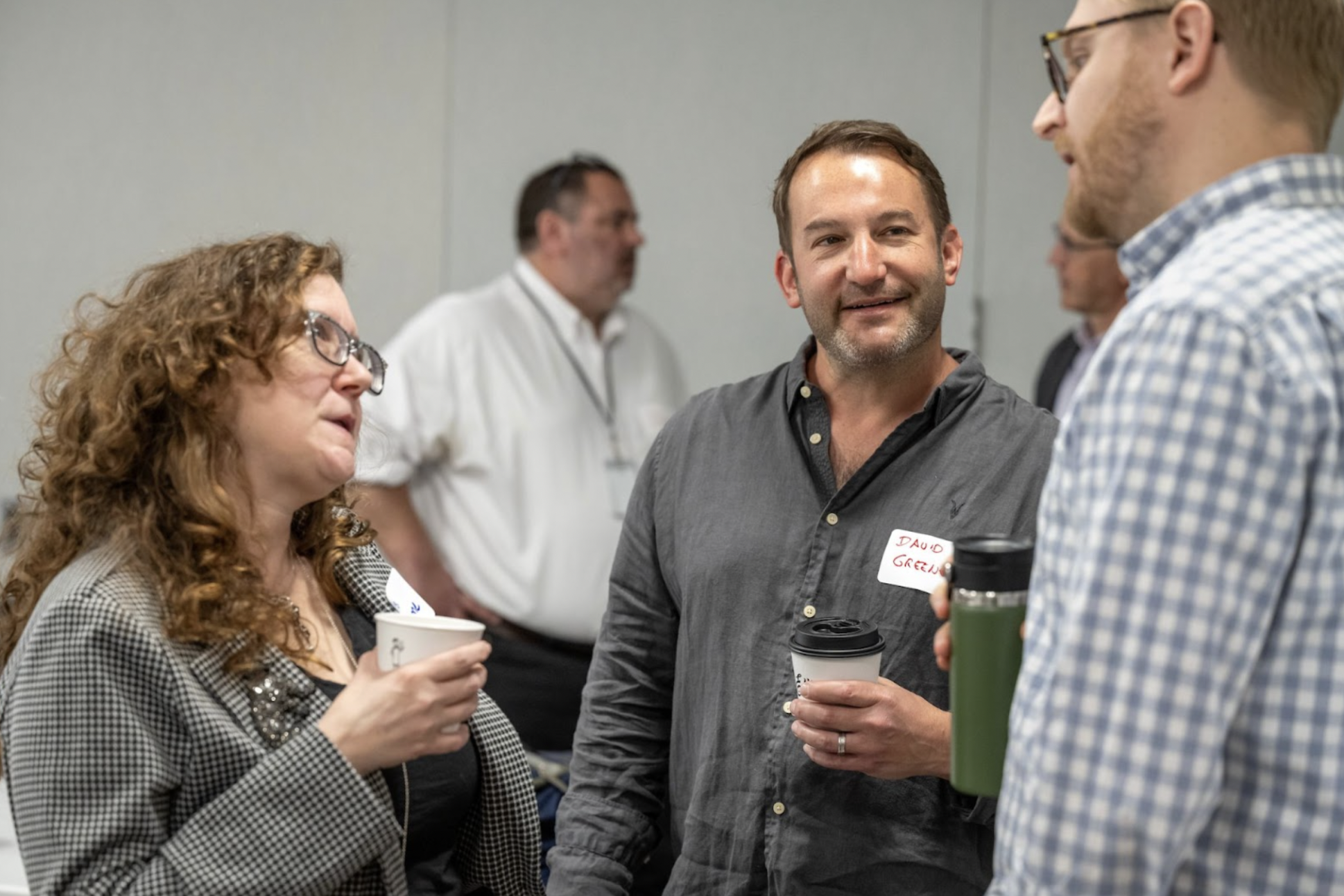Photo Courtesy of Franklin & Marshall College Office of Communications
“Journalism is a cornerstone of our Democracy,” remarked one Franklin & Marshall student while discussing the need to keep news media relevant and fresh for young adults. Inspired on the sunny morning of April 9th, staff members of The College Reporter, students of Professor Medvic, McCaskey High School students, along with representatives from WITF-FM radio station, LNP Newspaper, the Steinman Institute, and the Steinman Foundation, welcomed well-renowned journalist and Lancaster native, David Greene, to facilitate this conversation.
After graduating from Harvard University, where he was an editor of the Harvard Crimson in 1998, Greene reported for the Baltimore Sun. In 2005, he joined NPR and covered the Bush White House. From 2010 to 2012, he was a foreign correspondent for NPR based in Moscow, and in 2012 joined Morning Edition. In 2011, Greene received the Daniel Schorr Journalism Prize for his work in Tripoli during the Arab Spring. Announcing his retirement from NPR in October of 2020, Greene currently hosts the podcast Left Right & Center. To The College Reporter staff, Greene’s accomplishments are an encouraging reminder that all seekers of truth begin somewhere, many times at the collegiate level of reporting.
To commence the event, Greene shared a story of his own time as editor-in-chief at McCaskey High School’s, The Vidette. Instilling the values of truth and holding those in power accountable, Greene’s first major investigative project dealt with the biased treatment by teachers implementing school ID policies on only certain students. His anecdote is an emblem of the very mission that pulls all storytellers to the page: a sense of journalistic integrity an audience craves and rightfully deserves. Seamlessly segwaying into the crux of the discussion, Greene posed the question: “How can [young people] have a seat at the table to tell stories and deliver news in a way that engages and connects?”
Greene continued by playing the day’s edition of Tim Lambert’s podcast, who was in attendance, The Morning Agenda, a daily news outlet catered to central Pennsylvanians. The April 9th edition featured information on the solar eclipse, providing information on school closings, and how looking directly at the moon’s obstruction of the sun can cause damage to the retina.
Speaking on their reactions to the podcast, many students shared the same praise for the credibility of the short audio clip as it displayed multiple different voices. Another student commended how apolitical the podcast was, which he thought “made it more accessible to all people.” Many students also appreciated the generational aspect of hearing different citizens’ excitement about the solar eclipse, upholding the idea that “something is happening and we are all excited about it.” A different student shared that a quick podcast tethered together with evidence and visual descriptions “is appetizing to people in this generation.”
Transitioning into the imperativeness of local news, one student shared she enjoyed the relativity of the news in the podcast, stating “I’m inevitably going to hear the big stuff, local news reminds me of where I am and what I am doing.” Building off of that, Greene highlighted the significance of local news, stating “We are never going to know everything, see everything, listen to everything, let’s start closer to home. Let’s figure out what is happening down the street before across the world.” With growing distrust in both domestic and international reporting, local news fosters a sense of intimacy and trust in the sense that most consumers do not fear an alternate political agenda coming from reporters who could be as close as their neighbors.
Nearing the conclusion of the session, students from both F&M and Mccaskey High School were put into small groups to discuss possible alternatives for news outlets that young adults are more likely to engage with. One proposition included a platform that utilizes a combination of reportage through audio clips and short articles that feature a central objective voice, yet includes both liberal and conservative lenses. The platform would provide viewers the opportunity to research all opposing viewpoints. Another group came up with an app similar to TikTok where users can scroll through news headlines. In a curated platform, users would be able to click on the headlines that interest them, upholding the experiential importance of diving into what interests the reader and providing a sense of consumer agency.
In an age where young people decreasingly rely on standard forms of journalism to consume news, the media must increase a generational desire to engage by understanding and cultivating innovative media models. Young adults are not disconnected from the news, the delivery of news is disconnected from young adults. Evident through the burst of creativity and concern brought forth by Greene’s discussion, the common narrative that Gen Z is disengaged with the world is an erroneous notion that fails to consider the prioritization of social awareness and progression characterizing a generation raised with technology.
Sophomore Anna Chiaradonna is the editor-in-chief. Her email is achiarad@fandm.edu.
